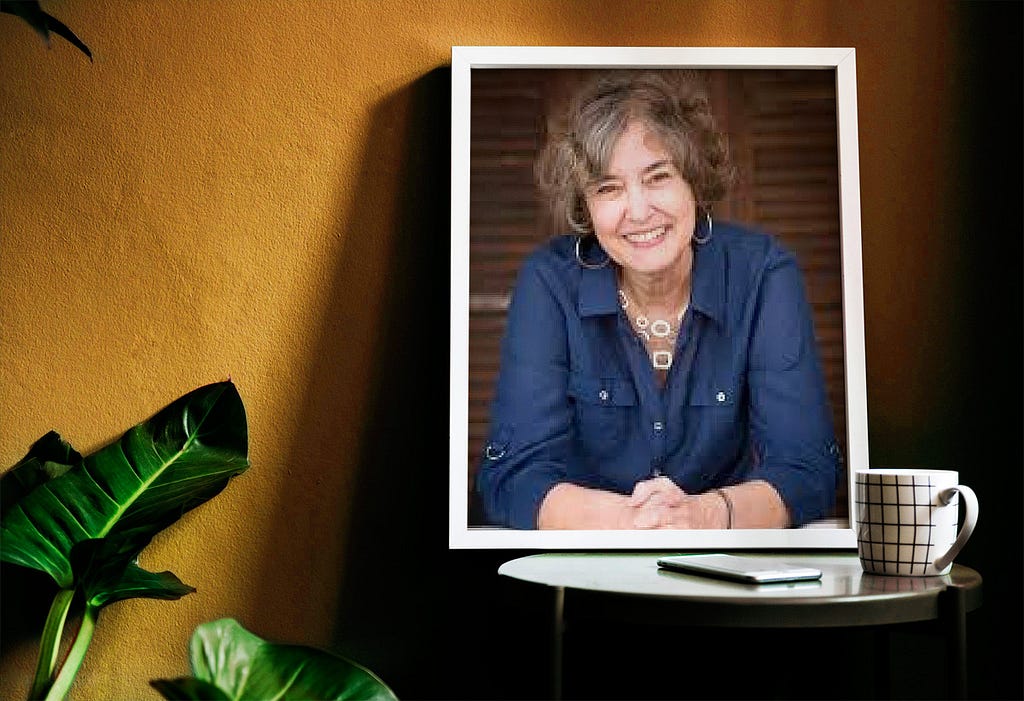Unstoppable: How Author Lyn Barrett Has Redefined Success While Navigating Society With Traumatic Memory

Developing the capacity for authentic relationships was my next most important accomplishment. Not only have I rebuilt relationships with my children, I am happily remarried after 25 years of living alone, and have a wide circle of friends.
As As a part of our “Unstoppable” series, I had the pleasure of interviewing Lyn Barrett.
Lyn Barrett is the author of Crazy: Reclaiming Life from the Shadow of Traumatic Memory, (publication date January 3, 2022), Koehler Books; and also DID Unpacked: A Parable available on Amazon.Lyn is a speaker, retreat leader and survivor of early childhood trauma as well as a retired elementary school teacher, school principal and church pastor. At the age of 45, Lyn was diagnosed with multiple personality disorder, now known as dissociative identity disorder (DID). From happy wife and mother to a suicidal woman who felt the crazy fog of dissociation take over her life, she embarked on a journey to uncover the secrets that overwhelmed her. After suffering decades of inner chaos and deep pain, Lyn now lives a fulfilling and integrated life and considers herself a whole person again. Lyn is thankful for her wonderful therapist, friends and her own dogged determination to heal. Lyn currently facilitates writers workshops and teaches a memoir class for dissociative writers, writes weekly blogs and a newsletter, and speaks on public radio, podcasts, and in other settings. She holds advanced degrees from Lehigh University and Lancaster Theological Seminary. She can be reached through her websites at www.lynbarrett.com and www.dissociativewriters.com.
Thank you so much for joining us in this interview series! Can you tell us a story about what brought you to this specific career path?
I was diagnosed with multiple personality disorder, now known as dissociative identity disorder, in 1992. For the ten years leading up to the diagnosis and the ten years of intensive therapy leading from the diagnosis, I experienced challenges that threatened my sense of self, my family, my career, and my life. During this time, I was a teacher and a school principal.
Do you feel comfortable sharing with us the story surrounding how you became disabled or became ill? What mental shift did you make to not let that “stop you”?
I had been a happy wife and mother prior my ten-year decompensation that led to diagnosis. In the decompensation period, I felt like I wasn’t me, my surroundings were unreal, my thinking and feeling didn’t match, I had multiple strands of thought at a time, I was in constant body pain, I lived with suicidal ideation, and I attempted suicide once. Two years later, I checked myself into the women’s unit at a psych hospital which was the pivotal moment that set me on the right track. When I came out, I found a new therapist, was diagnosed a year later, and began trauma-informed therapy which included meeting my alters, learning their stories, establishing inner communication, working on relationships, and developing trust.
I wanted to live. I wanted to feel whole again. I wanted to be the mother my children deserved. I wanted to feel sane, not crazy. I knew I would either live or die, and I decided to live. That required a relentless search for the roots of my disorder and a persistent willingness to walk through the pain to illumination and clarity. Ten years after diagnosis, my more than 20 alters integrated.
Can you tell our readers about the accomplishments you have been able to make despite your disability or illness?
Staying alive and becoming healthy and whole was my most important accomplishment, for myself as well as my children who suffered during my decompensation.
Developing the capacity for authentic relationships was my next most important accomplishment. Not only have I rebuilt relationships with my children, I am happily remarried after 25 years of living alone, and have a wide circle of friends.
Professionally, I grew as a teacher and school administrator, and spiritually, I grew from being an atheist to going to seminary and becoming a church pastor and spiritual director.
Today in retirement, I am publishing my memoir, Crazy: Reclaiming Life from the Shadow of Traumatic Memory, facilitate free online writers workshops for people with dissociative disorders, write a weekly blog and newsletter, and host two websites: www.lynbarrett.com and www.dissociativewriters.com.
Although I am integrated, according to the structural theory of dissociation which is the current understanding of the disorder, I still have DID. When my brain was developmentally young, it developed with parts who collaborated to keep me safe until adulthood when a crisis caused them to separate. My parts now trust me to manage most things in life, and they only occasionally come forward to express an opinion or emotion. Each of their strengths and weaknesses are now a part of who I am.
What advice would you give to other people who have disabilities or limitations?
- Love yourself. You are worth it.
- Take life one day at a time, one minute at a time, if you need to.
- Research the roots of your disability and the options before you.
- Set goals that will make you happy, regardless of how out of reach they may seem.
- Relentlessly pursue your goals and believe that you will achieve them.
- Welcome surprises that may help you refine your goals.
- Invite others into your sphere and seek help when you need it.
- If you carry shame, fear, or lack of confidence, give it away. Most likely, it doesn’t belong to you and, even if it does, it’s time to shake loose of it.
- Celebrate every day, no matter how hard it’s been. It’s a gift.
None of us can achieve success without some help along the way. Is there a particular person who you are grateful towards who helped get you to where you are?
My therapist, Sonia Nowak, LCSW, in Bethlehem, PA. She was the midwife who helped me give birth to myself.
How have you used your success to bring goodness to the world?
I’ve probably always been a “minister” even when I didn’t believe in God. What I mean by that is that when something springs from a passion deep within, it’s ministry, regardless of whether it’s related to religion. Teaching is ministry. Administering a school can be ministry. The work I do with dissociative writers workshops, my memoir and blog writing, my speaking and leading workshops, and my interaction with brave writers who share their souls is all ministry. In retirement and at the age of 74, I am “coming out” for the first time and seeking to educate the public about DID — a misunderstood condition — and support people with DID, their therapists, family, and friends.
Can you share “5 things I wish people understood or knew about people with physical limitations” and why.
I will change this question to refer to DID rather than physical limitations.
- DID is not rare. Research shows that between 1–5% of the world population is diagnosed with DID which places it with bipolar disorder and schizophrenia in terms of prevalence.
- DID develops in early childhood when the child experiences chronic trauma and/or abuse. It is a creative coping strategy in the face of horrible circumstances.
- DID is functional in the young child who parcels the abuse to some parts of the brain so other parts of the brain can go back and trust their parents or caregivers. It is dysfunctional in adults who are no longer in danger.
- Most people with DID manifest it covertly which means you are unlikely to see overt switching between alters. Often called the “hidden disorder” because it develops to hide the abuse from everyone, including the one who owns it, people with DID are usually very careful NOT to reveal their disorder.
- With correct diagnosis and appropriate treatment, people with DID can heal from the symptoms of abuse and live happy and full lives. In many cases, this means having alters “integrate” so the person can function as one. In other cases, people with DID live in “functional multiplicity” which means symptoms have been healed but alters remain separate entities.
Can you please give us your favorite “Life Lesson Quote”?
Life is a gift.
We are very blessed that some of the biggest names in Business, VC funding, Sports, and Entertainment read this column. Is there a person in the world, or in the US whom you would love to have a private breakfast or lunch with, and why? He or she might just see this 🙂
Dr. Phil has had several celebrities with active DID on his show, probing their condition and explaining the disorder to the public. I would like to be invited to the show as an example of how recovery is possible for people with DID. As Dr. Phil provides solutions for people with problems, he can use me as an example of a successful solution.
This was very meaningful, thank you so much. We wish you only continued success on your great work!
Unstoppable: How Author Lyn Barrett Has Redefined Success While Navigating Society With Traumatic… was originally published in Authority Magazine on Medium, where people are continuing the conversation by highlighting and responding to this story.
